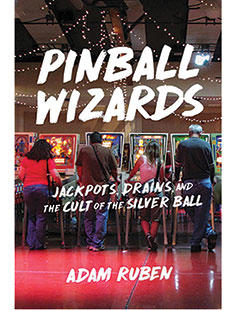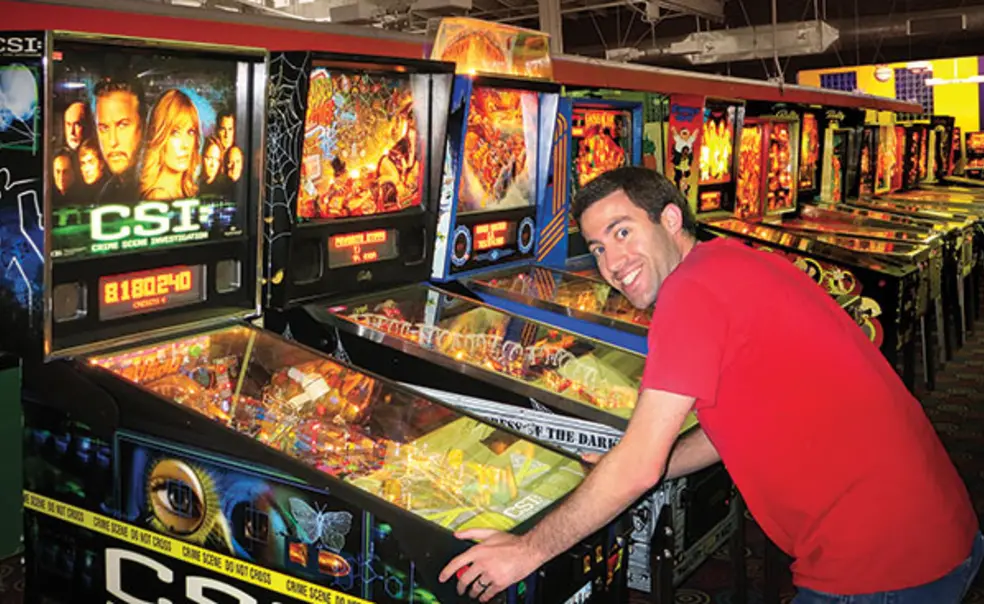
As the years passed, I learned from the competitors in my weekly pinball league. I picked up advanced techniques, like the hold pass (holding the ball with one flipper, then passing it to the other), the bounce pass (letting the ball bounce off a lowered flipper to catch it with the other one), and the chill maneuver (doing nothing but chilling while the ball rockets down the middle, relying on the benevolence of the center peg for rescue). The list of machines whose rules I knew grew, and according to the Professional and Amateur Pinball Association Advanced Rating System, I rose as high as 80th in the world.
In the world.
I put it on my résumé.
Seriously, I did, at the very bottom, under “Other Interests and Activities.” An interviewer even asked about it once. “Oh sure,” I said, nonchalantly exhaling onto my fingernails, “I dabble a bit.”
I don’t play sports. I have a physique like an Ethernet cable. Pass me a basketball, and I feel helpless. Put me on the volleyball court, and I’m counting the seconds until I can rotate out. But give me two quarters and a 1997 Medieval Madness, and suddenly the rhythm of the world makes sense.
Which is why I felt the physical symptoms of withdrawal when I stopped playing pinball for four years. I could pretend I dropped out of my league and stopped traveling to competitions because I wanted to retire at the top of my game. I could offer a respectable excuse, like carpal tunnel syndrome. But the real reason I stopped playing is far more common among men who suddenly quit the leisure activities they used to enjoy: I had a baby, and my wife wouldn’t let me.
Don’t get me wrong. I love my family, and I’d stop playing pinball forever if that would somehow avert some disaster from befalling them. Still, I missed the excitement of competition, the anticipation before releasing the plunger, the thrill of knowing I need to hit the left ramp and I’ve just hit the left ramp.
Shortly after my daughter turned 3, my son was born. Now that’s it, I thought. With two kids, I can scarcely justify a trip to the bathroom, let alone a night at pinball league or a weekend at a tournament. Pinball is history, and I’ll just have to take up another hobby, like nothing. Yes, that’s what I’ll replace pinball with: nothing.
Then something wonderful happened. For years, I’d dreamed of writing a book, but I kept procrastinating — not for any good reason, but just because writing a book is a lot of work, even when it’s about something you love. To help me out, my wife, Marina, who is nothing if not a proponent of professional development, offered a deal: “If you write that book you keep talking about,” she said, “you can play all the pinball you want.”
Was this a trick? “But I don’t want to play pinball!” she was expecting me to say. “I only love you and the children and laundry!” I then concluded she must be having an affair.
But no. The offer was genuine. In that wonderful way that spouses know exactly what their partners require to succeed, she had intuited my need for external motivation to write a book. I could play pinball, free and clear. And I could start with a triumphant return to the World Pinball Championships.
Excerpted from Pinball Wizards: Jackpots, Drains, and the Cult of the Silver Ball by Adam Ruben © 2017 Chicago Review Press. Reprinted with permission.












No responses yet